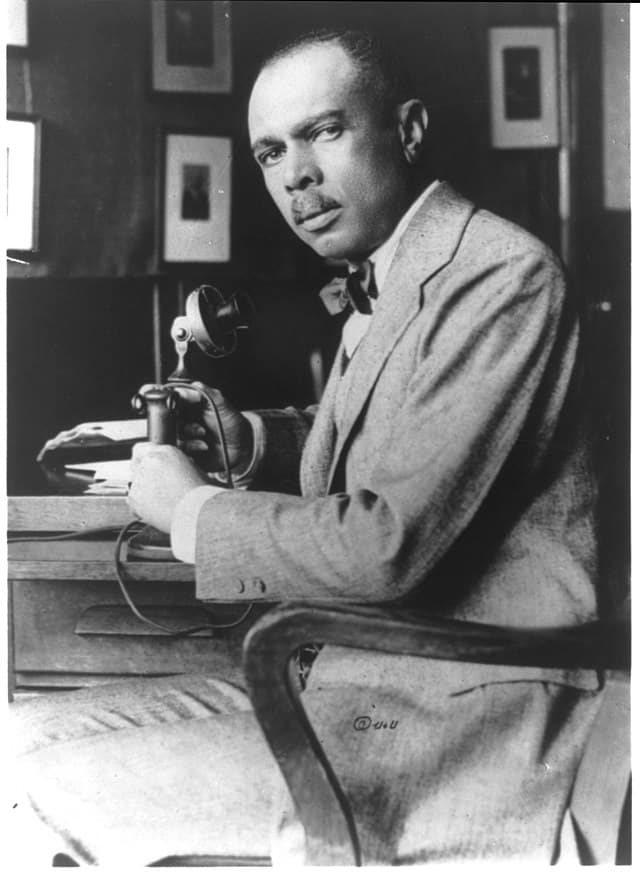James Weldon Johnson was a composer, rights activist, lawyer, writer, and politician. He penned one of the most significant songs in the black liberation struggle ‘Lift Every Voice and Sing.’ Today, his contribution to the fight for the rights of black people has more resonance. Let’s look at the life and time of James Weldon Johnson.
Interested in African American culture? Check out these items on Amazon.
Become an insider. Subscribe to our newsletter for more top trending stories like this!
People Also Read: 10 Must-Try Black-Owned Vegan Restaurants, Atlanta
James Weldon Johnson’s Early Life
James Weldon was born on 17 June 1871 in Jacksonville, Florida. He was raised by his mother and father at a time when segregation was rife. His parents, who were well-educated, ensured that he also received a good education.
James studied at Edwin Stanton School and then went to Atlanta University in Georgia and graduated in 1894. Two years later, he joined Thomas Ledwith’s Law Office to study Law. In 1898, James successfully took the bar exam and became one of the few black attorneys in the United States.
Join our Spotcovery Global Black Community Facebook Group for early access to exclusive content and to share in a lively discussion.
James Weldon Johnson’s Career
Despite his qualifications in law, James Weldon didn’t practice it. Instead, he worked as a Principal at his alma mater, Edwin Stanton School. He went on and engaged in other things.
In 1895, he started the Daily American but then took an interest in composing music. He did this with his brother Rosamond and sold some of their music for Broadway.
In 1900, they were tasked with composing a song for Abraham Lincoln’s birthday. This led to the making of “Lift Every Voice and Sing”, which today is known as the “Black Anthem.”
The song became the anthem of the National Association for the Advancement of Colored People. Johnson wrote more than 200 songs. He went on to join Columbia University, where he studied literature.
People Also Read: Intriguing Black-Owned Bars in Atlanta: Top 10
Political Pursuits
In 1906, James Weldon took up diplomatic positions in Venezuela and Nicaragua. He served until 1914 and turned his attention to The National Association for the Advancement of Colored People (NAACP).
Become an insider. Subscribe to our newsletter for more top trending stories like this!
Six years on, he was appointed the CEO and is credited for creating the Harlem Renaissance African-American artist community.
In 1916, he worked as a Field Secretary of the NAACP. He increased the membership and the number of branches the organization had. The following year, Johnson led the biggest march, “Silent March,” organized by an African American.
People Also Read: 10 Best Beach Hotels in the Caribbean for Black Travelers
Published Works
James Weldon Johnson produced a couple of literary works. In 1912, his book The Autobiography of an Ex-Colored Man came out. The book got a lot of attention in 1927 when he published it under his name. By that time, he’d published another book, “The Book of American Negro Poetry.” Other books include:
- The Book of American Negro Spirituals (1925).
- God’s Trombones (1927).
- Seven Negro Sermons in Verse (1927).
- Black Manhattan, a Social History of Black New York (1930).
- Along This Way (1933).
After he left the NAACP, James Weldon became a professor at New York University in 1934. He passed away in 1938.
James Weldon Johnson’s contribution to the black liberation struggle remains significant. Additionally, his pursuits in education and literature also earned him a place in history.
Get James Weldon Johnson’s books on Amazon.
Nearly 80% of consumers visit directories with reviews to find a local business. List your business for free in our exclusive Spotcovery Black-Owned Business Directory.
Spotcovery offers unique and fresh daily content on Black culture, lifestyle, and experiences. We talk about everything black, black people, black-owned and black-owned businesses. We also deliver authentic and relevant content that will inform, inspire, and empower you! The future of black media is critical to today’s black experience! Our primary audience includes African Americans, Africans, Afro-Caribbean, and people of African heritage. Black culture is for the culture!
Become an insider. Subscribe to our newsletter for more top trending stories like this!





